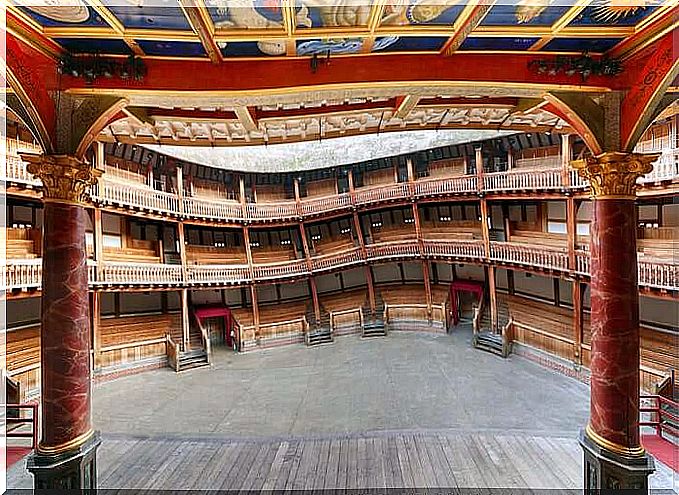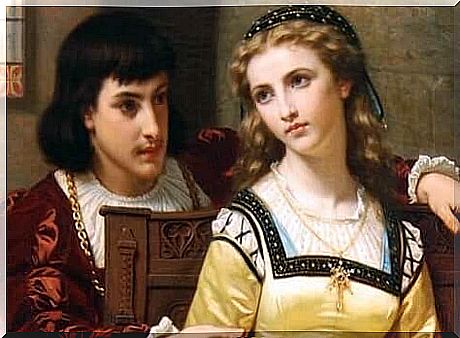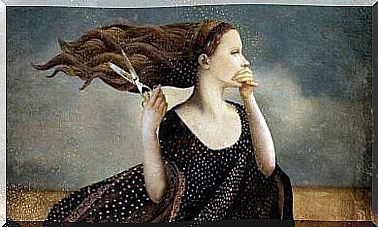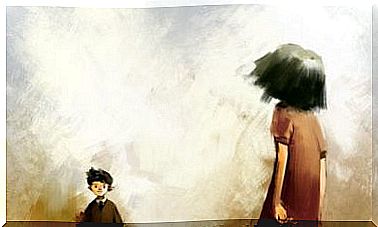William Shakespeare: The Immortal Bard

Ben Jonson, the famous 16th century poet and playwright, said of William Shakespeare that he was ageless, that he would be the genius of all time. He wasn’t wrong. His works have been translated into more than 100 languages. His stories, his characters and his verses are now part of our culture. They teach us how the magic of love is orchestrated, how much betrayal, deception, war hurts.
Also known as the Bard of the Avon, Shakespeare was a revered poet and playwright in his day, but assumed considerable importance during the Victorian era. More than 400 years have passed since his death and since then his works have been adapted thousands of times and almost everywhere in the world.
Characters such as Hamlet, Shylock, Lady Macbeth, Viola, Rosalinda or her Caliban from The Tempest often escape the classic archetypes. This is perhaps Shakespeare’s greatest skill. Because just when we think we know the characters, something happens that surprises us and keeps us glued to the plot.
With his clever quill, he traces the outlines of already immortal figures. Tormented kings, traders, witches or sweet lovers show themselves with our same contradictions. The spectator sees in the past and contemplates in the present time parts of his ego shown on the stage and embedded in those magnificent characters.

The early years: the beginnings of a young actor and writer
William Shakespeare was born in 1564 in Stratford-upon-Avon, in Warwickshire (England). His father, John Shakespeare, was a city councilor and his mother, Mary Arden, was a wealthy lady.
Little is known about his childhood and youth. Starting in 1582, the family began to have economic problems. Shakespeare was thus forced to leave his studies and work as a butcher.
At the age of 18, he got Anne Hathaway, the daughter of a neighboring farmer, pregnant. After the birth of a baby girl, the couple married and they moved to London. Shakespeare had one goal in mind: to live as an actor and writer.
Arriving in the British capital, he joined the theater group The Chamberlain’s Men, in which he will begin acting with great success.
The birth of the playwright
Starting from 1592, the figure of the Bard develops . The Avon playwright gained considerable fame on the London stage. His patron, the young Henry Wriothesley, Earl of Southampton, confidently introduced him to the most acclaimed intellectual circles of the time.
This influence, together with Shakespeare’s open and almost libertine character, were the ingredients of a rather turbulent social life.
He formed a close friendship with other authors, including writers Christopher Marlowe, Ben Johnson, Robert Greene and Richard Burbage. All of them were amazed by his early works. Henry IV (part I), and later Henry IV (part II), together with Henry V achieved a resounding success in the London theater scene.

Later, Richard II , Richard III and Titus Andronicus arrive . But it is with comedies, such as The Two Gentlemen of Verona or A Midsummer Night’s Dream, that he demonstrated his true genius: enchanted and original stories that increasingly captured the audience of the time.
By 1597, the Bardo dell’Avon, as he was nicknamed, had already written 15 of the 38 works we know today. He was a wealthy man who lived in Stratford’s most stately home and who could satisfy any wishes and needs of his family. William Shakespeare loved his life.
He wrote screenplays for his theater company, and sometimes participated as an actor. In 1599, his company rebuilt the Globe Theater from the ruins of The Theater to also create a gambling house.
William Shakespeare’s Last Years
With the arrival of the new century, Shakespeare’s literary works continued to grow and mature. From 1600, great immortal characters appeared on the scene, such as Troilus and Cressida, Hamlet, Othello, King Lear, or Romeo and Juliet. In this era, the dialogues are richer, more dynamic, while the poetic style becomes more refined and profound.
The texts that we find in Hamlet differ from those of previous eras, such as those in Henry V . The language is more sagacious and the lines are more agile and effective to show us the psychological depth of the characters. During this period, William Shakespeare also publishes his famous Sonnets .
The latest works, such as Cimbelino or The Tempest , present a tragicomic genre, with darker stories, but which do not lose the ability to surprise the public. In 1613, after Henry VIII’s staging , the Globe Theater burns in a fire.

The theater reopened the following year, but in the meantime William Shakespeare retired to Stratford. He died shortly after, at the age of 52. The exact cause of death is unknown, but there are written documents that testify to his passion for drinking with his playwright friends, such as Ben Johnson.
The fever and the continuous excesses extinguished before the time a character who could have given us who knows how many other immortal works.
Style and controversy over the works of William Shakespeare
A debate has always accompanied the figure of William Shakespeare: is he really the author of all these works? Even Mark Twain, Henry James and Sigmund Freud are said to have questioned his true identity.
There is no shortage of those who affirm that behind many of the works attributed to Shakespeare there is Christopher Marlowe, or the Earl of Oxford, Edward de Vere.
Even today we don’t know if Shakespeare was a figurehead. The British publishing house Oxford University Press, for example, states that Shakespeare and Marlowe worked together, and therefore many of the works attributed to the former were, in fact, the result of mutual collaboration.
Shakespeare and the art of enriching a language
Despite the uncertainty about the role of the Avon’s Bard in Shakespearean works, there is a reality that cannot be denied. His works have had a huge influence. William Shakespeare played with language to adapt it to his artistic purposes.
By doing so, he enriched the English language significantly. It is estimated that he coined up to 2000 new words. Terms such as “auspicious”, “waning” and “untimely” are the results of his splendid inventiveness. On the other hand, his characters represent key references to understand many realities of popular culture and the world of psychology.
Acting like Othello or being like Romeo and Juliet give us an immediate idea of the concept we want to express. In essence, William Shakespeare is an immortal and unparalleled figure and still a source of inspiration.









